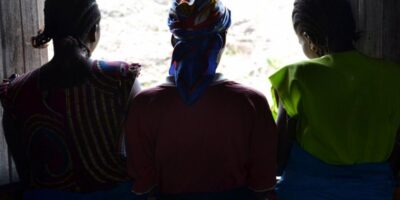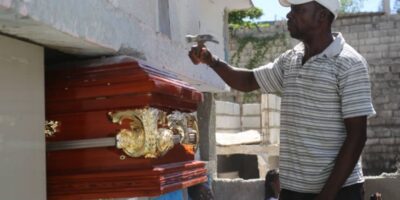The Haitian Paradox: Navigating Internal Challenges and External Influences
Haitian historians, political analysts, and commentators often attribute Haiti’s struggles in achieving social, economic, and political transformation to international interference. While this argument holds validity, it falls short. To address Haiti’s challenges effectively, we must first acknowledge our role, which has perpetuated inequality, injustice, violence, corruption, and political instability. This essay contends that Haiti’s transformation struggles stem from both internal and external factors. Regardless of the reasons, taking responsibility for our future is essential to achieving lasting change.
As Haitians, we take pride in our history, especially the remarkable Haitian Revolution that challenged Western powers and birthed the world’s first black republic, reshaping the narrative for people of African descent and dismantling the foundation of white supremacy.
However, 219 years later, we’ve faltered in upholding that legacy, burdened by its weight or failing to build upon it. Our founding leaders made errors, with personal ambitions leading to the tragic assassination of Haiti’s visionary founding father, Jean Jacques Dessalines, which regrettably stains our collective consciousness.
Dessalines’ assassination marked the beginning of a pattern of tragic ends for many Haitian political leaders. Between 1879 and 1995, only one president, General Salomon, completed his term, with most others overthrown or killed. For years, Haiti remained a pariah state, unrecognized by the US until 1862, long after France, which had extorted a considerable sum. While international actions contributed to Haiti’s challenges, we mustn’t overlook our internal issues.
Historically, our leaders have failed to articulate a coherent, inclusive vision, prioritizing personal and political interests, and marginalizing a significant portion of the population, accompanied by corruption, mismanagement of the state, and the exploitation of our resources. The Haitian state has struggled to establish a robust framework, often undermined by its own economic and political elites, a problem that persists in 2023 and will continue without change.
As a result, many Haitians have distanced themselves from the state, not out of resilience but as a survival mechanism. While external factors play a role, blaming them alone is insufficient. The solution requires genuine self-examination as a critical first step toward laying a new foundation for a different future and a stronger nation-state.
The KPK Movement: A New Chance for Transformation or Another Missed Opportunity?
Haitian leaders have a history of snatching defeat from the jaws of victory at pivotal moments when transformation seemed within grasp. This was the case after the people’s brave rebellion against the US occupation, their courageous stand leading to the downfall of the repressive Duvalier regime, and the more recent Bwa kale resistance movement. In each case, the aftermath has been, at best, a disappointment.
President Abinader’s overreaction to the construction of a canal on the Massacre River has inspired a new movement, “Kanal la Pap Kanpe or KPK” (the Construction of the Canal Will not Stop). This movement has sparked enthusiasm and revived national pride, providing a valuable opportunity for Haitians to unite around a common issue and cause. While the canal is important for the local population in Ouanaminthe, it also represents a larger opportunity to rally Haitians at home and abroad to drive significant economic changes.
Government’s Role in Economic Transolultural research and development (R&D) to increase productivity and provide agricultural extension services.
Unfortunately, the current government does not seem to be considering these strategies and solutions. This is yet another missed opportunity, as the agricultural sector has the potential to strengthen Haiti’s economy and reduce its reliance on imports.
Kanal la Pap Kanpe : Symbolism and Substance
Many individuals, including former elected and unelected officials, faith leaders, and groups from both within the country and the United States, have actively fundraised and symbolically visited the canal site. However, it’s surprising that these visitors haven’t asked nor said much about critical aspects of the project such as the feasibility study, detailed construction plans, or its post-construction governance.
While the rallying cry of KPK is powerful and unifying, it alone is insufficient. We must demonstrate that the canal will be constructed competently and in adherence to recognized construction standards. Failing to do so would not only make us appear inept but also provide ammunition to our adversaries.
Furthermore, we should anticipate that the technical aspect of the construction will be challenged by the Dominican government. And if an international evaluator determines that it does not meet the proper specifications and standards, some among us will claim a conspiracy. This will erode the credibility of our legitimate demands.
Despite these challenges, the KPK movement represents a new chance for transformation in Haiti. The biggest challenge, as it has always been, is the lack of vision and capacity of Haitian leaders.
Unlocking Haiti’s Potential: The Power of “What If” Thinking
To say that the international community is not looking out for Haiti’s best interests is to state the obvious. This is not a revelation. Former Secretary of State Henry Kissinger repeated former British Prime Minister Henry John Temple’s maxim that “nations do not have permanent friends or enemies, only interests.”
If we take that maxim to heart, then the responsibility for Haiti’s future lies solely with Haitians.
We cannot simply and continuously say, “no.” Instead, we must challenge ourselves to do what we can with what we have. Therefore, I am left with many questions, such as:
- What if we challenge ourselves to think about what we could do with an extra 1000 police and other law enforcement officers?
- What if we modified the mantra of Operation Bwa Kale to “Lapolis la devan, kenyan yo bakòp, pèp la dèyè – the police are in the front, the Kenyans are back up, and the population is behind?”
- What if we could build on the energy behind the canal as a jump-off point to engage in structural changes that could transform Haiti’s economy?
Charting a Path Forward for Haiti’s Transformation
To truly transform Haiti, we must embrace a mindset of solutions-based thinking, one that doesn’t merely identify and dwell on problems but actively seeks solutions. Complaints should become the springboards for action, criticisms should be transformed into strategies, and grievances should be channeled into impactful engagement.
Haiti is in dire need of leaders who can harness the energy of its people and construct well-informed, strategic, practical, and lasting solutions.
The KPK movement presents a unique opportunity to unite Haitians around a common cause. It also has the potential to drive significant socio-political and economic transformations. However, the movement faces significant challenges, the most important of which is the lack of government support. This support is essential for very practical issues such as the development of environmental studies, a comprehensive construction plan, and effective governance structures for the management of water distribution.
Despite the lack of government support, civil society can step into this gap. We have a wealth of well-educated individuals both within Haiti and among the diaspora who possess the expertise needed to plan and implement successful projects.
I appeal to both the government and civil society leaders to rise to the occasion and take advantage of this historic opportunity. This is a crucial time for Haiti. The path to transformation lies in embracing our legacy, confronting our historical responsibilities, and forging our future.
Stay in touch with AyiboPost through :
► Our Telegram canal : click here
► Our WhatsApp Community : click here







Comments